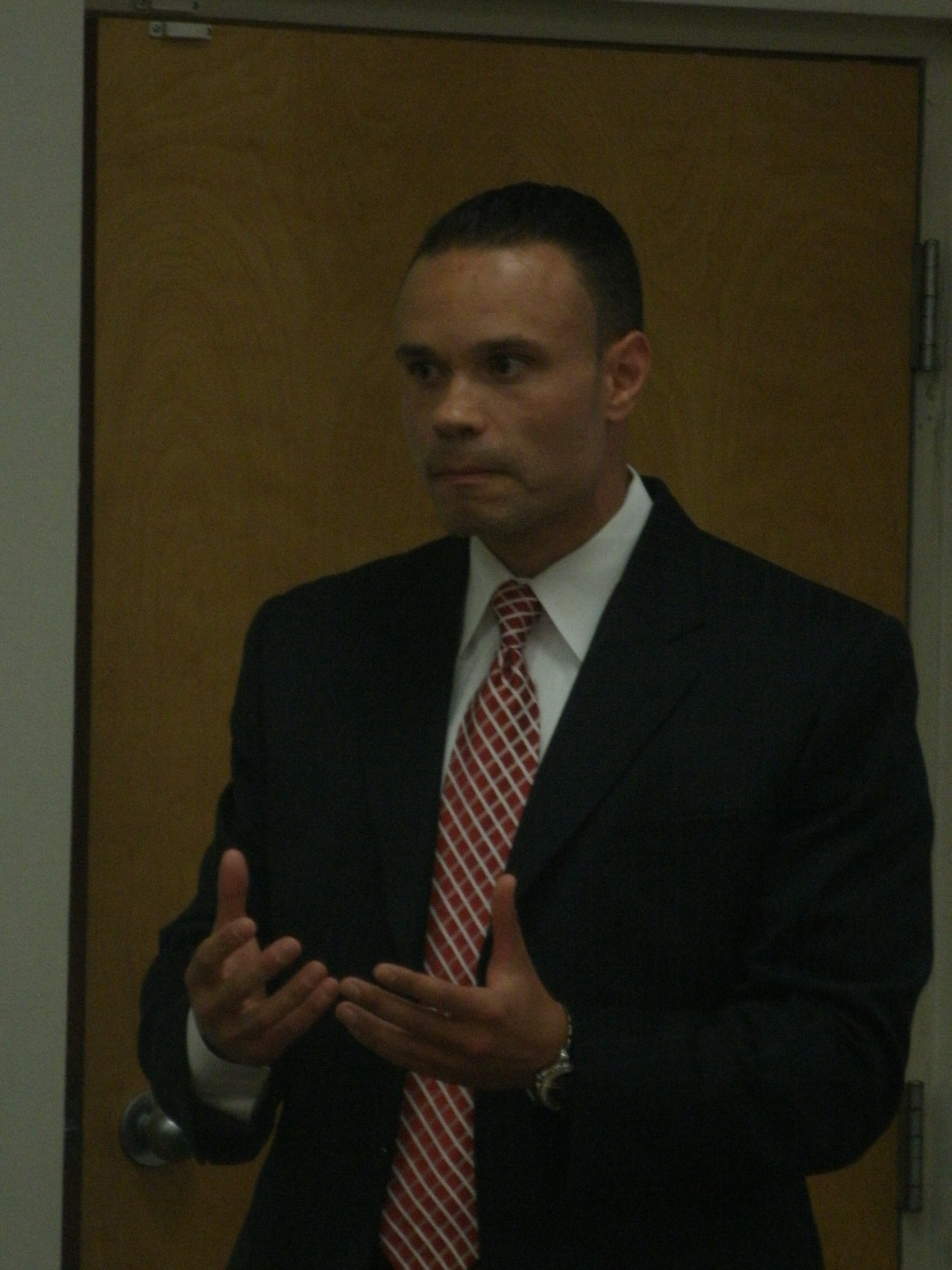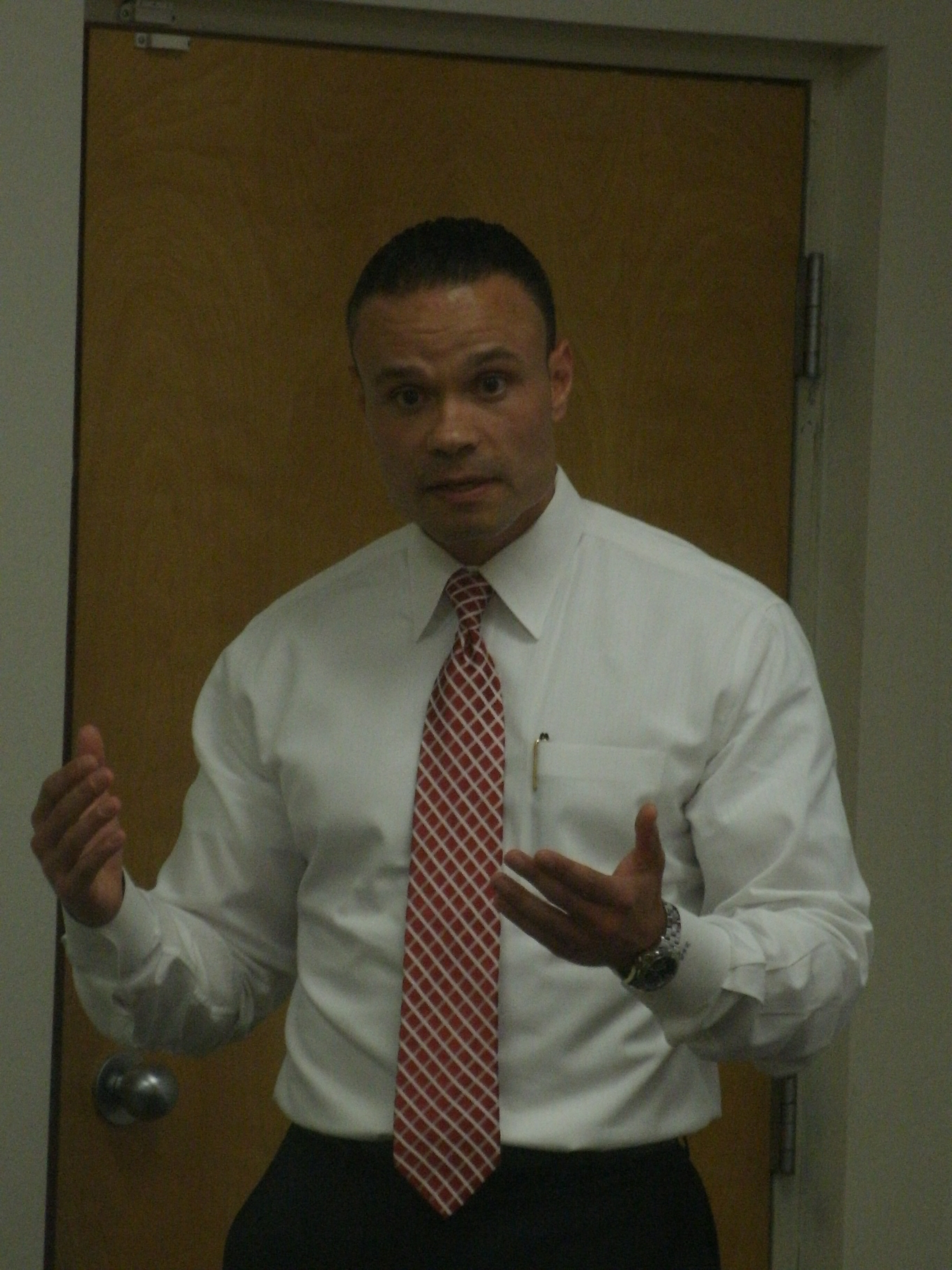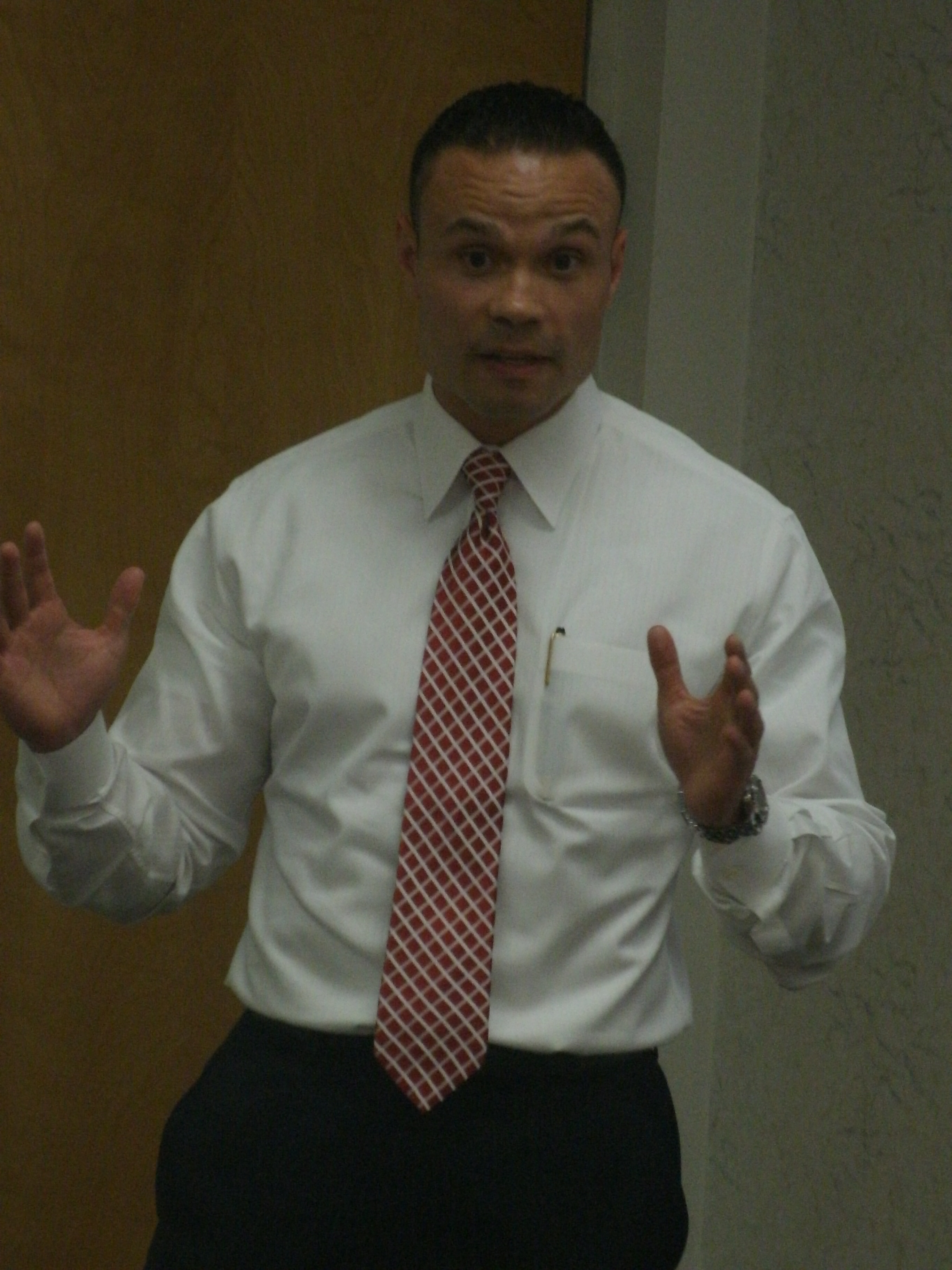Fellow blogger Judy Warner, who now contributes to the Potomac Tea Party Report, tipped me off to an article on the Atlantic website; an article which provided a glimpse at perhaps the most important part of Barack Obama’s electoral victory. Obviously it’s packed with effusive praise for Obama’s campaign in general, for the Atlantic is at heart a highbrow liberal magazine.
But there’s an important point to be considered: say all you want about Obama’s wretched foreign and domestic policies, but he knew how to get re-elected despite being arguably the worst president since Jimmy Carter when it came to bungling both sides of the equation. Oh sure, we on the conservative side know that the mainstream media ran interference for him like the Chicago Bears of another era blocked for Walter Payton but in the end it was Payton who made the defense miss tackles and not easily bring him down.
The part about the Atlantic‘s piece by Alexis Madrigal which stuck out to me the most, though, was the Obama campaign’s willingness to go outside the political arena and find people who simply knew how to make the best use of the technology out there. (If only he would do the same for economics and Constitutional scholarship.) Of course, there was a symbiotic relationship between the two since I’m certain the vast majority of those who signed on were in Obama’s philosophical corner, but this is the technology edge that the Republicans swore up and down they would negate this time around. Instead, we had the well-documented and discussed crash of the ORCA system on Election Day which cemented the demise of Mitt Romney’s Presidential bid.
The orphan of Romney’s technology failure could be traced back to the fact that those who were by trade political consultants – and hence “knew how the system worked” – really didn’t know squat about the technological side of things. Ten years ago e-mail lists were golden because that was going to be the new way to reach voters. In fact, as I recall, the first rendition of Obama For Against America had a massive list of somewhere around 13 million e-mail addresses to start from (including mine.) But their technology team built up from there and integrated all sorts of data collection and outputs tailored from it.
As an example, remember the post where I related the fact they knew I hadn’t donated to the Obama campaign? The fact that they could tie together the database which had my e-mail address and the one where they had the records of who donated was seemingly beyond the capability of the Romney camp. Instead, the Romney side would send me the EXACT SAME e-mail several times – once from their campaign and then through three or four different “sponsored content” sites to whom I’m sure the Romney people paid handsomely for their list. Unfortunately, I happened to be at the very center of that Venn diagram and I’m betting that most of you reading this were too. But does a generic e-mail motivate someone to go to the polls or donate?
Once again, the key difference came down to data. Maybe I wasn’t high up on the sophistication level of the Obama people because they knew I was sort of a lurker on their e-mail list. I’d bet a dollar to a donut they knew I was a XXX Republican voter and therefore gave me the minimum of e-mail efforts; meanwhile, the uncommitted or newly registered voter (or one who bothered to fill out more information at the Obama site, unlike me) had a variety of messages tailored for him or her. You don’t honestly think the “Julia” advertising campaign or the Lena Dunham “First Time” commercial weren’t calculated to arouse a group they knew they had a maximum of potential voters within? It’s also why they promoted the false “war on women” narrative, with plenty of media help to play up unfortunate statements by U.S. Senate candidates Todd Akin and Richard Mourdock.
Since the Romney campaign all but ignored Maryland, let’s look at one statewide Republican campaign we contested, that of Dan Bongino. Just as a recap, Bongino began running for the U.S. Senate as a first-time candidate in the spring of 2011. He had no political experience and his main initial backing was from someone who had ran and lost badly in his first run for political office at the statewide level a year earlier in Brian Murphy. It wasn’t exactly a broad platform to begin from, and the key question in the race early on was whether 2010 GOP U.S. Senate nominee Eric Wargotz would try again. He didn’t.
But Bongino worked hard to overcome many of his disadvantages, and had the attribute of a compelling, man-bites-dog sort of story: a former Secret Service agent quits to make a seemingly quixotic U.S. Senate run in a liberal bastion of a state. Moreover, he’s young, well-spoken, and telegenic, with a rags-to-riches life story that unfortunately too few got to hear outside of the conservative echo chamber. Dan did well at nationalizing his campaign thanks to that story, and managed to win the Republican primary in April over the game but underfunded Richard Douglas and several other less qualified candidates.
Perhaps the Bongino campaign hit its peak just before Labor Day, because just as people decided to start paying attention a newcomer jumped into the race with a populist promise and millions of dollars at his disposal. Obviously this threw the Bongino campaign out of balance and too much time was spent trying to fight off the challenger on the ladder below while the guy above him had little to do but watch the other two battle it out. It was almost as if Dan had to run a second primary campaign in the midst of a general election, this time against an opponent who was much better-funded and inundated the airwaves with slick 30-second commercials beseeching people to “declare your independence.” Like it or not, the “independence” pitch was a message that worked with those who were sick of party infighting but didn’t want to bother enough to go into the details of Rob Sobhani’s pledges.
But imagine what could have been had Dan had the same sort of database and expertise used by the Obama campaign? He could have targeted his message in such a manner to counter the incumbent’s record to certain voters, rebuke the so-called “independent” to wavering supporters, and kept the money stream flowing from the die-hard element. There was no question in my mind that Dan’s message had broad appeal, and perhaps had the roles been reversed between Bongino and Sobhani to where Rob was the GOP nominee and Bongino the unaffiliated candidate, the results would have been about the same. The only difference would be that the Maryland GOP would have been embarrassed about losing to an independent candidate as well as a Democrat.
That’s not to say that there aren’t potential databases at our disposal. We have an idea of those who are most worried about illegal immigration (Question 4), and are pro-family (Question 6). Those who came out against Question 5 and Question 7 can also be construed as sympathetic to at least part of our message. Then add in all the AFP people, TEA Party participants, and fiscal conservatives we know and one can build up a little bit of a knowledge base. Of course, the key is keeping it up to date and determining relevant messaging for the situations which crop up.
A new era is dawning in politics. The old scattershot standby of sign waving doesn’t seem to be very effective anymore, even as well as Dan did it in one memorable afternoon. There were a lot of cars going by on Rockville Pike that day to be sure, but there was no way of knowing whether these were even registered voters. Maybe it’s because I don’t get a lot of Democratic campaign e-mail, or maybe there’s just not enough of a base around here to make it worthwhile, but I never hear about a Democratic sign waving unless it’s in the form of a larger protest. What few Democratic tactical e-mails I received (from the Obama campaign, naturally) had to do with person-to-person events – making phone calls from the local headquarters or having “watch parties” for various campaign events at people’s homes. The former was probably more effective for reaching out to undecided voters while the latter kept the zealots motivated to keep giving of their time and talents. And it came down to having the database to know where I lived and what events were being planned by supporters via solid communications between volunteer and campaign. Those functions were handled on a local level on the Romney side, not always well.
It has been said to me on many occasions that conservatives win on issues and that we are a center-right nation. Obviously I believe that and if anything I think we need a stronger dose of limited government.
But data is king. It’s not enough to have the registration lists and do the door-to-door and phone calls, both of which seemed to be sadly lacking in Maryland thanks to a self-defeating prophecy which states Republicans can’t win statewide elections so why bother trying? That’s a good start, but we also need to invest in the electronic end of things and, more importantly, look outside the incestuous web of political consultants who talk a good game about political IT and find those who do these things for a living. Not all of the Web and social media gurus are liberal Democrats – admittedly, most are but we have to build up a farm team there as well.
I believe we can overcome all those “demography is destiny” and “you can’t convince the minorities to vote GOP” naysayers by using the right data to send them the conservative message. We can win, but it will take hard work, a lot of prudent investment outside of the good-old-boy, inside-the-Beltway system which continues to insure us defeat after defeat, and less of a reliance on things we always thought worked before but have outlived their usefulness.
All of us movement conservatives have some sort of talent, and there are a growing number who believe mine is in analyzing information and providing it to readers in a coherent fashion. As I said in my book. I believe there’s a place for someone of my talents in a conservative, limited-government movement. Years ago I read a self-help book which said I should manage around my weaknesses so I took that to heart and play to my strengths, and mine is in gathering my thoughts and turning them into pixels on a computer screen or words on a page.
But there’s a far bigger place for those who know how to corral data and put it to use so people like me can communicate to the largest number of relevant people possible, while others who have that gift of gab and outgoing personality needed for the task are sent to knock on the right doors and dial the right phone numbers with the right message for the listener. It’s never going to be foolproof, but we have a long way to go just to be adequate.
Finally, we have to treat this like a war. Of course I don’t mean that in the sense of carnage and mayhem, but the idea of taking time off or letting someone else do the job is no more. A soldier has to be ready for anything at any time, and we have to be ready to mobilize at a moment’s notice, keeping an eye out for future elections. On that front, I’m very disappointed I’ve seen no action in my hometown and no credible candidate file to either run against our mayor or the two City Council members whose seats are up in this cycle. Nor do we have a good idea yet of who will be running locally in 2014. (In that case, though, we happen to have a number of incumbents but there are seats we’d love to contest and fill as well.)
Not all campaigns will be successful, but I think we can take a step toward eventual success in learning from our tormentors, and the Atlantic profile provides a quick case study.




